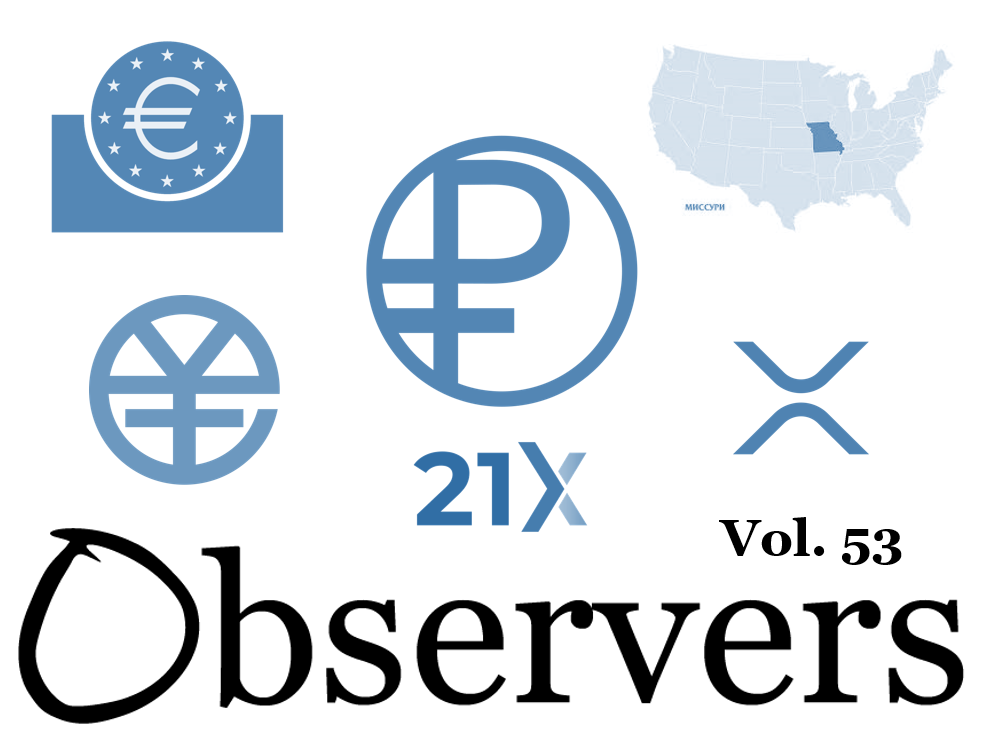Banking CBDC Roundup, CBDC, Digital Euro, e-CNY, Digital Dollar, Digital ruble, BIS, 21X, XRP, Archax
Banking and CBDC Weekly Roundup: 09/12/2024
Another U.S. state pushes for CBDCs to be banned — as a tokenization platform secures a crucial license for rolling out in the EU. Also in this issue: an overview of developments in China, Russia, and the EU central bank digital currencies.

